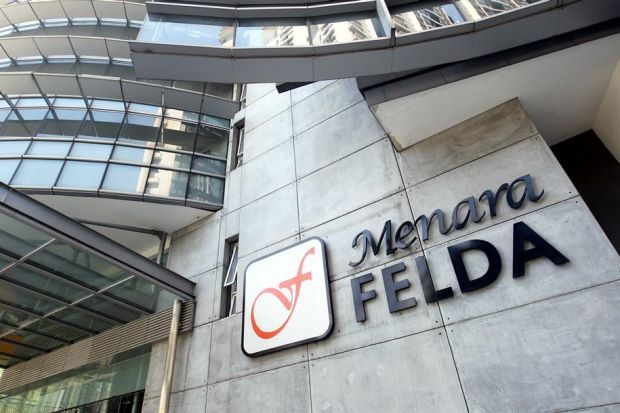All eyes on Felda, LTH-linked stocks
PETALING JAYA: Khazanah Nasional Bhd’s move to divest part of its stake in IHH Healthcare Bhd is already sparking interest in other government-linked companies (GLCs) it owns.
Come 2019, the attention of GLCs is expected to expand to stocks held by the Federal Land Development Authority (Felda) and Lembaga Tabung Haji (LTH). This comes as the government is expected to disclose the appalling state of financial affairs in both these government-controlled entities this week.
“Felda is facing serious cash flow problems while LTH has gone into investments that face huge impairments. Both entities would need to divest assets and the easiest is to look at the listed companies,” said a fund manager.
“This could give the FBM KLCI a catalyst on possible corporate developments,” he said.
After Khazanah disposed of a 16% stake in IHH two weeks ago to become the second-largest shareholder in the healthcare group, investors’ interest turned to other companies within the stable of sovereign wealth fund.
Among them are Axiata Bhd, CIMB Group Holdings Bhd and UEM Sunrise Bhd which have all been speculated to be part of an exercise where Khazanah reduces its interest and allow new parties to take the lead in the companies.
Axiata’s share price has came to life since the IHH divestment was announced end-November. Khazanah owns 3.37 billion shares, or a 37.2% stake, in Axiata, making it the biggest shareholder in the regional telecommunication services provider.
Unlike Khazanah which predominantly holds blue chips and big caps. Felda and LTH hold mainly small to mid cap stocks, some of which are very speculative in nature. However, should there be a conscious move to divest some of these stocks, interest in the market might be stirred up, particularly among the retailers.
Felda, through Felda Investment Corp (FIC), has stakes in three listed companies – Iris Corp Bhd (11.66%), Encorp Bhd (67.13%) and Barakah Offshore Petroleum Bhd (8.79%). All three companies are today trading at values lower than what FIC paid.
Meanwhile, LTH has stakes in 102 listed companies, with the most well known being its 30% stake in beleaguered oil and gas fabricator TH Heavy Engineering Bhd
TH Heavy is perhaps one of the pilgrim’s fund’s biggest drags, and it has been holding this position since 2008. For the year ended Dec 31, 2017, LTH’s impairment on the TH Heavy investment amounted to RM164.58mil,
Some of the bigger companies where it has stakes include BIMB Holdings Bhd, TH Plantation Bhd, Tenaga Nasional Bhd and MISC Bhd The mid-size companies where LTH has stakes include Malakoff Bhd, Malaysian Resources Corp Bhd, Lotte Chemical Titan Holdings Bhd, Cahya Mata Sarawak Bhd and Mudajaya Group Bhd
Some of the smaller companies where it has pockets of investments are Notion Vtec Bhd, Alam Maritim Resources Bhd, Reach Energy Bhd, APB Resources Bhd and Scomi Energy Services Bhd
“The asset divestment by these funds will definitely benefit the market and the economy as a whole. When the government first introduced the asset divestment programme back in 2011, one of the main rationales was to reduce the public sector crowding out the private sector. Apart from this, the divestment will increase stock liquidity, while the proceeds from the stock disposals will improve public financials,” said an analyst.
He added that there could be an impact on the stock especially if the transaction price of the stake sale is higher than its market price, as what happened to IHH.
IHH’s share rose sharply from the RM4.54 level to RM5.50 over three weeks in November due to Khazanah’s 16% share disposal for RM6 per share.
However IHH commanded a premium because of its regional exposure and it was in a growing business. As for the stocks in LTH and Felda, almost all are domestic oriented and is not likely to command a premium.
“Nonetheless a divestment would add liquidity and allow for a change in direction for these companies,” said the fund manager.
“The FBM KLCI has never been known to be a liquid stock exchange. This divestment move could make our market more attractive as more investors now have an opportunity to own a more substantial share in our companies,” he said.
Furthermore, the issue of Malaysia having a low free float has constantly bugged foreign fund managers. This has been one of the main reasons that has contributed to Malaysia only having a weightage of 3% in the MSCI Emerging Markets Index.
Bursa Malaysia remains one of the least attractive markets in Asia Pacific in terms of liquidity, deal flow and new listings.
Source: TheStar

